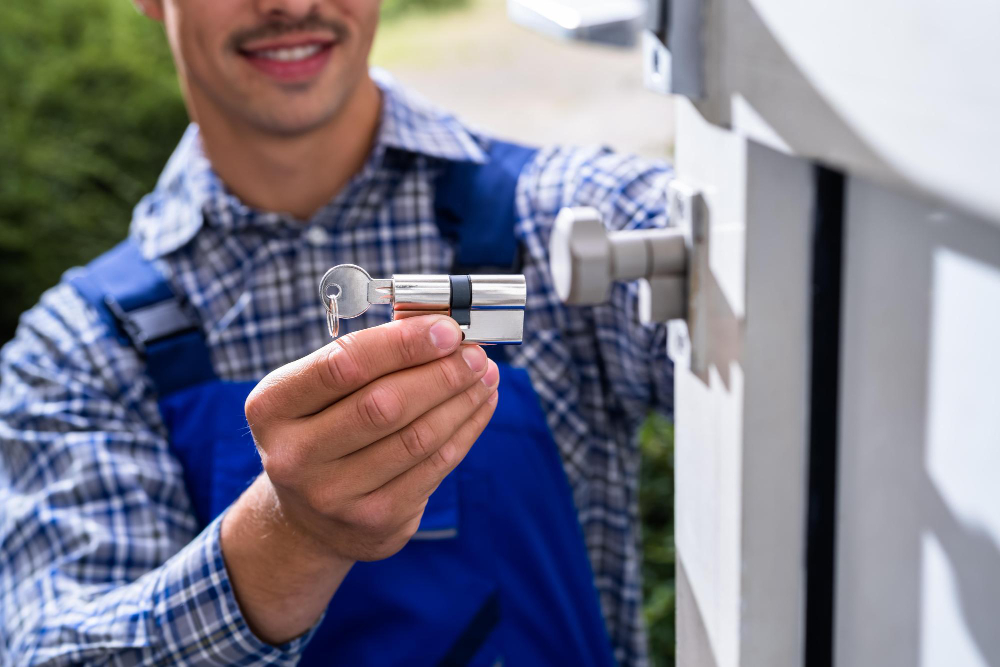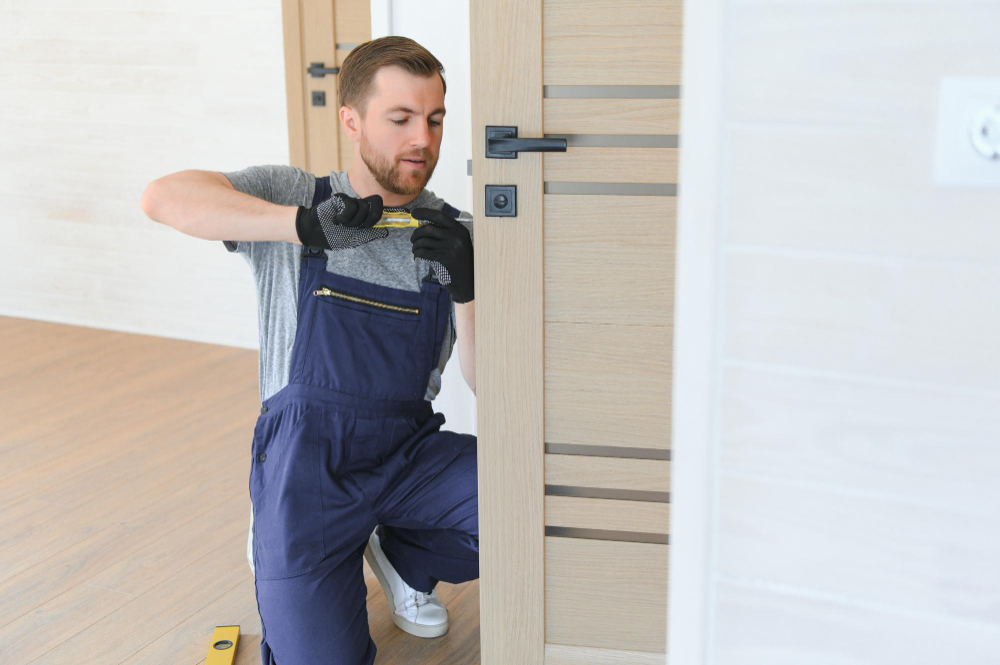Imagine standing outside your home, keys misplaced and locksmith at the ready. But how does the professional ensure you’re not an intruder? The delicate balance between security and customer service in locksmithing raises intriguing questions about ownership verification.
In a world where privacy concerns clash with the need for swift assistance, locksmiths face unique challenges. For people who wonder how do locksmiths verify ownership, this guide uncovers the processes and ethical considerations that guide locksmiths in their decision-making.
We’ll explore how locksmiths use various methods to protect property owners and maintain their professional integrity. We’ll dive into the evolving landscape of property security, the role of technology in modern locksmithing, and the legal frameworks that shape industry practices.
Join us as we unlock the secrets behind this crucial aspect of the locksmithing profession, shedding light on a process that affects us all in moments of need.

Why Verifying Ownership Is Important for Locksmiths?
Due to security concerns, locksmiths must verify ownership to grant authorized access, preventing theft and damage. Scrupulizing IDs and documents helps thwart identity theft attempts.
This diligence builds trust with clients and fulfills legal obligations, safeguarding locksmiths from liabilities and maintaining professional integrity. Overall, verifying ownership underscores the locksmith’s role in promoting safety and legality in communities.
How Do Locksmiths Verify Ownership?
Checking identification
Locksmiths start by asking for a government-issued ID. This could be a driver’s license, state ID, or passport. They check if the photo matches the person and if the address on the ID matches the property.
This is a good first step, but usually not enough on its own. They may use biometric verification methods, such as fingerprint scanning or facial recognition.
Proof of residency
Locksmiths often ask for recent utility bills or mail. These show that the person actually lives at the address. Bills from the last few months work best.
For homeowners, property deeds or titles provide even stronger proof of ownership. In some cases, they may also verify residency through digital records, such as property tax documents.
Authorization letters
Sometimes, property owners can’t be there in person. In these cases, they might give someone else a letter allowing them to request locksmith services. This is common for landlords, property managers, or house sitters.
The letter should clearly state what the locksmith is allowed to do. Electronic authorization via email or a secure online platform is becoming more common.
Vehicle ownership verification
For cars, locksmiths check registration documents and insurance papers. They also match the car’s VIN (vehicle identification number) with these documents.
This helps prevent working on stolen vehicles and ensures they’re helping the rightful owner. In some cases, they may collaborate with law enforcement databases to verify vehicle ownership.
Ownership Verification Challenges and Locksmith Preparation
When you need a locksmith, you might face challenges proving ownership, especially if you’re renting, inherited a property, or just moved. To avoid delays, keep important documents like your ID, lease, or property papers ready. Does a locksmith need proof of ownership? Absolutely!
If you can’t prove ownership immediately, locksmiths may offer temporary solutions or use alternative verification methods. When calling a locksmith, clearly describe your problem, mention any ownership verification issues, and ask what documents they need.
Good communication and preparation can make the process smoother, ensuring you get help quickly while the locksmith follows proper security procedures. Remember, they’re just making sure they’re helping the right person, so being prepared helps everyone.

Conclusion
In conclusion, ownership verification is a critical responsibility for locksmiths, balancing customer service with security concerns. So, if you are wondering how do locksmiths verify ownership, this guide reveals the different ways locksmiths do that.
Ownership verification is at the heart of their professional practice, guiding their approach to each job. Locksmiths verify various documents to assist property owners. This multi-faceted approach not only protects property but also maintains the integrity of the locksmith profession.
While technology evolves, new verification methods may emerge, but the core principle persists – to offer essential services securely. By adhering to these rigorous verification processes, locksmiths continue to play a vital role in community security, fostering trust and peace of mind for their clients.


